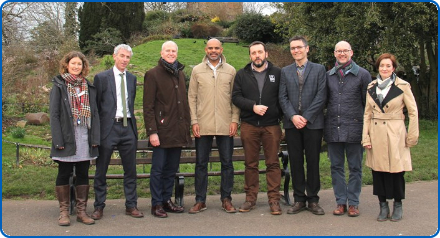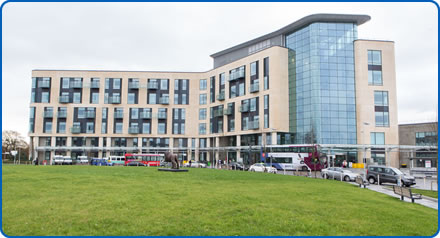North Bristol NHS Trust (NBT) has today joined several other Bristol organisations in recognising the need to take action to protect and preserve local wildlife.

This expands on the declaration of a climate emergency, made jointly between NBT and University Hospitals Bristol Foundation Trust (UHB) in October 2019.
Declaring an ecological emergency highlights the need to go beyond simply cutting carbon emissions, to make steps to preserve and protect local wildlife for future generations. It also presents an opportunity for closer partnership working towards a shared goal within Bristol and the local area.
The declaration was made as part of a Cabinet meeting, led by Bristol Mayor Marvin Rees.
A joint statement was presented by NBT, UHB and the BNSSG CCG:
‘We recognise the very serious threats to biodiversity, and the role we can all play in protecting and preserving our wildlife for future generations. We will be working together in the coming months to look at the collective action we can take in light of today’s declaration.
There is already some great work to be built on within our partnership, including the comprehensive Biodiversity Management Plan at North Bristol Trust (which includes tree, wildflower and drought-tolerant planting, alongside insect hotels and bird boxes) and the climate emergency action plans being implemented by our acute hospital Trusts. We are committed to sharing this learning and expertise across our partnership to ensure that the health and care system is making the best possible contribution to a sustainable environment for our citizens.’
NBT’s Biodiversity Management Plan sets out the work that the trust has completed to date to actively encourage wildlife and the creation of new habitats and to adapt our sites ready for a changing climate.
The Southmead Hospital site has been developed over the last 15 years with ecological conservation in mind, and the specification for the Brunel building (which opened in 2014) included a variety of measures to bring the benefits of the natural world into healthcare.
The Brunel building was designed with integral planted courtyards and views of natural vistas to benefit patient recovery. Two gardens in particular were dedicated for therapy use with patients being encouraged to use the outdoor space as part of their rehabilitation. One of these includes a water feature.

One of the most recent additions to the site’s green spaces is Lime Tree Park, which officially opened in July 2019 at the Southmead Road entrance to the site. The park not only provides a community green space which staff, patients and the public can use for their wellbeing, but gives yet another area of the site that can potentially be used to foster new wildlife.
